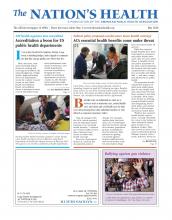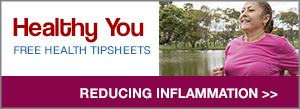Fracking
Duke University Press in February published “Fractivism: Corporate Bodies and Chemical Bonds.” Written by APHA member Sara Ann Wylie, MPH, the book describes the impact of hydraulic fracturing, also known as fracking, on the environment and humans. The book also discusses how stakeholders are approaching oil and gas well development through digital platforms and databases. For more information, visit www.dukepress.edu.
Nature and public health
Oxford University Press in March published the “Oxford Textbook of Nature and Public Health: The Role of Nature in Improving the Health of a Population.” Edited by Matilda van den Bosch, MD, PhD, and William Bird, GP, the book discusses the role of nature in public health through, such as disease prevention, climate change adaptation and natural disasters. For more information, visit https://global.oup.com.
Foodborne illness
The American Medical Association and U.S. Food and Drug Administration in February released two continuing medical education videos. The videos, “What Physicians Need to Know about Foodborne Illness: Suspect, Identify, Treat and Report” and “Talking to Patients about Food Safety,” are designed to help physicians and their patients on prevent foodborne illness. For more information, visit https://www.fda.gov/Food/ResourcesForYou/HealthCareProfessionals.
Health care
The Sigma Theta Tau International Honor Society of Nursing published in January “Evidence-Based Practice in Action: Comprehensive Strategies, Tools and Tips from the University of Iowa Hospitals and Clinics.” Written by Laura Cullen, DNP, RN, FAAN; Kirsten Hanrahan, DNP, ARNP, CPNP-PC; Michele Farrington, RN, CPHON; Jennifer Deberg, OT, MLS; Sharon Tucker, PhD, RN, PMHCNS-BC, FAAN; and Charmaine Kleiber, PhD, RN, FAAN, the book offers tools to help health care providers implement evidence-based practices in the health care field. For more information, visit www.nursingsociety.org.
Flint water crisis
The Network for Public Health and the University of Michigan School of Public Health in February released “Learning from the Flint Water Crisis: Protecting the Public’s Health During a Financial Emergency.” Developed in partnership with the de Beaumont Foundation, the report outlines shortcomings in managing the Flint, Michigan, water crisis. The report also provides suggestions to prevent similar crises. For more information, visit www.sph.umich.edu.
Transit
Transportation for America in February released the guidebook “Fight for Your Ride: An Advocate’s Guide for Improving & Expanding Transit.” The guidebook provides methods to improve public transit, including ways to improve the service for riders. The guidebook also includes lessons on organizing campaigns to improve transit in communities. For more information, visit www.t4america.org.
Refugees
Oxford University Press in February published “Atlas of Refugees, Displaced Populations and Epidemic Diseases: Decoding Global Geographical Patterns and Processes Since 1901.” Written by Matthew Smallman-Raynor, PhD, and Andrew Cliff, PhD, the book discusses patterns of communicable diseases among refugees and other displaced peoples throughout history. For more information, visit https://global.oup.com.
Substance use disorders
The American Medical Association in February released a new training and education platform for substance use disorders. The online treatment toolkit, End the Epidemic, aims to improve access to treatment and help physicians treat patients who have substance use disorders. The toolkit also provides resources that are specialty- and state-specific. For more information, visit www.end-opioid-epidemic.org/treatment/.
Have a new public health book, video or other resource you want to share? Send your Resources news to julia.haskins{at}apha.org.
- Copyright The Nation’s Health, American Public Health Association












